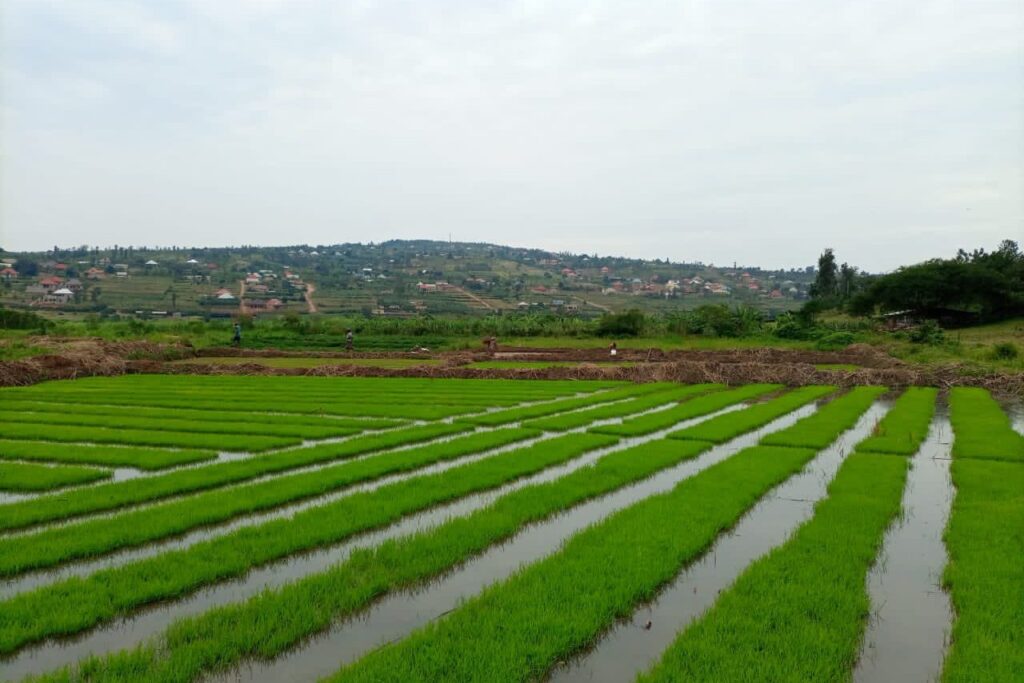
PROJECT
OMIS
Operation, Management of Irrigation Schemes.
In the response to the need of promoting sustainable water management for climate reliance in farming, the government of Rwanda has found that irrigation can be a sustainable solution to reduce the dependence on rainfall and free from associated risks.
OMIS BACKGROUND
In the response to the need of promoting sustainable water management for climate reliance in farming, the government of Rwanda has found that irrigation can be a sustainable solution to reduce the dependence on rainfall and free from associated risks.
The issue was that crop and livestock production is vulnerable to water-related stress resulting in significant production losses and crops may suffer from insufficient rainfall or be affected by heavy rainfall. Therefore, irrigation can alleviate these risks through combined measures for large-scale irrigation development. In recent years the capacity of on-farm water harvesting and storage, expanding and modernizing irrigation infrastructures and flooding management were increased country wide.

Moving forward, the Government committed to increasing the efforts to expand irrigation usage within the context of both through integrated water resources management (IWRM), landscape approaches and promoting greater private sector involvement in irrigation technology supply and management.
As pre-defined in National Strategy of Transformation (NST1), in priority area number 6 namely Modernize and increase productivity of Agriculture and livestock the one of key strategic interventions includes Promote new models of irrigation scheme management, through development and strengthening of farmers’ and water users’ associations, and the piloting and scaling up of public-private partnership models involving private service providers in managing irrigation schemes.
To achieve these commitments, urgent and quick development of marshlands with high potential for irrigation and mobilization of farmers towards agricultural transformation process was done at first period.
MINAGRI developed different irrigation schemes through different programs like Quick Wins Marshlands Development Program (QWMDP), Rural Sector Support Project (RSSP), and Land Husbandry, Water Harvesting and Hillside Irrigation Project (LWH) etc. However, the rigorous damage of irrigation infrastructures and poor management of these schemes were identified right after their development because of different causes.
These include; level of farmers’ preparedness and lack of production plans that matching with developed schemes; low literacy on Good Agricultural Practices (GAP); lack of ownership of scheme stakeholders at government’s expectation; heavy cost to maintain irrigation infrastructures by water users within schemes among others.
The sustainable solution was, therefore, to intervene by moving from traditional agricultural techniques to modern ones by increasing the capacity of the farmers’ organizations (Cooperatives and IWUAs) involved in agricultural activities and management of irrigation infrastructures within the schemes. It is for the above reasons Ministry of Agriculture and Animal Resources (MINAGRI) through Rwanda Agriculture and Animal Resources Development Board (RAB) has been signed a partn
PROJECT SCOPE
In 2017, the project started with 21 developed Irrigation Schemes with 1,877Ha in Gisagara, Huye, Nyanza, Ruhango, Nyamagabe, Nyaruguru, Bugesera, Nyagatare, Kirehe, and Gisagara districts by providing technical assistance to the farmers and water users associations through daily and proximity coaching. The contract under this project between RAB and HoReCo was annually renewed based on performance and evaluation reports.
Currently, OMIS project covers over 18 irrigated schemes with more than 6,000 Ha that are located in over 10 districts of the country: Gasabo, Kicukiro, Rulindo, Gakenke, Musanze, Burera, Bugesera, Rwamagana, Nyagatare, Ngoma and Kirehe, where HoReCo is daily coaching 84 agricultural cooperatives and 71 Water User Associations.
